Lower Soil pH
Dave289
9 years ago
Featured Answer
Sort by:Oldest
Comments (18)
Kimmsr
9 years agotoxcrusadr
9 years agoRelated Professionals
Benbrook Landscape Architects & Landscape Designers · Walnut Landscape Architects & Landscape Designers · Lakeland Landscape Contractors · Madera Landscape Contractors · New Braunfels Landscape Contractors · Plantation Landscape Contractors · Ridgewood Landscape Contractors · St. Louis Landscape Contractors · Weymouth Landscape Contractors · Maple Grove Decks, Patios & Outdoor Enclosures · Cape Coral Decks, Patios & Outdoor Enclosures · Chicago Decks, Patios & Outdoor Enclosures · Freehold Decks, Patios & Outdoor Enclosures · Kyle Decks, Patios & Outdoor Enclosures · Somerville Decks, Patios & Outdoor Enclosuresgardengal48 (PNW Z8/9)
9 years agoKimmsr
9 years agorenais1
9 years agotoxcrusadr
9 years agoKimmsr
9 years agoSlimy_Okra
9 years agolucky123
9 years agotoxcrusadr
9 years agotishtoshnm Zone 6/NM
9 years agolucky123
9 years agoSlimy_Okra
9 years agoKimmsr
9 years agodrew51 SE MI Z5b/6a
9 years agoericwi
9 years agotoxcrusadr
9 years ago
Related Stories

GARDENING GUIDESGrow a Beautiful Garden in Alkaline Soil
Got alkaline soil? Learn how to manage it and the many beautiful plants that will thrive in this ‘sweet’ soil
Full Story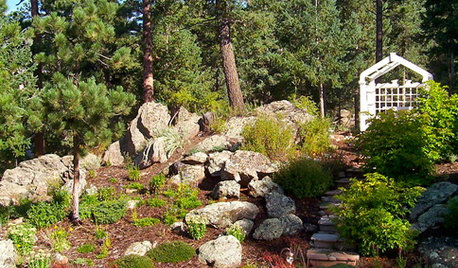
GARDENING GUIDESHave Acidic Soil in Your Yard? Learn to Love Gardening Anyway
Look to acid-loving plants, like conifers and rhododendrons, to help your low-pH garden thrive
Full Story
GARDENING GUIDESGet the Dirt on Your Garden’s Soil
Understand how your soil supports your plants so you can ensure your garden’s success
Full Story
GARDENING GUIDESHow to Stop Worrying and Start Loving Clay Soil
Clay has many more benefits than you might imagine
Full Story
FARM YOUR YARDHow to Get Good Soil for Your Edible Garden
The nutrients in your soil feed the plants that feed you. Here are tips on getting it right — just in time for planting season
Full Story
GARDENING GUIDESGardening Solutions for Heavy Clay Soils
What’s a gardener to do with soil that’s easily compacted and has poor drainage? Find out here
Full Story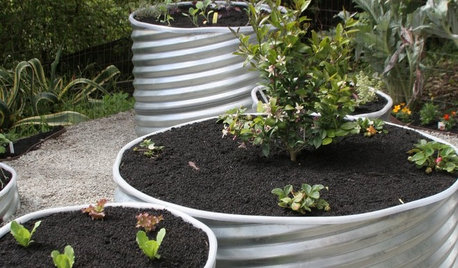
CONTAINER GARDENSContainer Gardening Basics: The Dirt on Soil
Learn the types of potting soil available and the best mixes to help your containers thrive
Full Story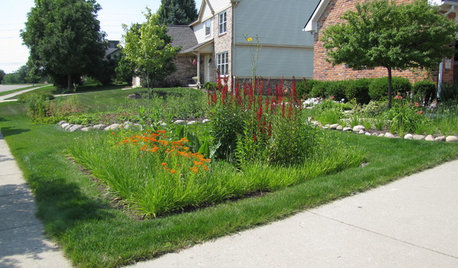
LANDSCAPE DESIGNHow to Shape a Rain Garden and Create the Right Soil for It
Learn how to grade, lay out and amend the soil in your rain garden to support your plants
Full Story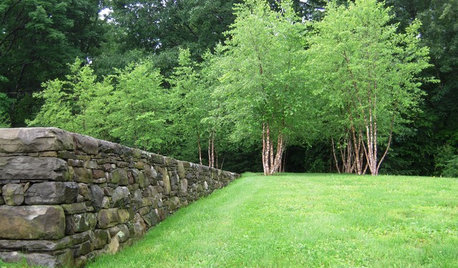
LANDSCAPE DESIGNFlood-Tolerant Native Trees for Soggy Soil
Swampy sites, floodplains, even standing water ... if you've got a soggy landscape, these trees are for you
Full Story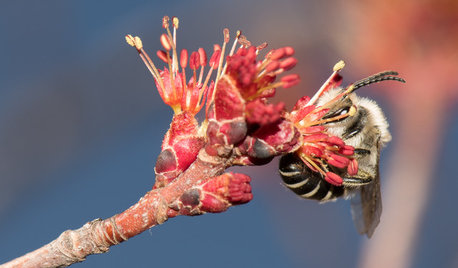
GARDENING GUIDESInvite Cellophane Bees to Your Garden by Providing Patches of Bare Soil
Look for cellophane bees (Colletes) pollinating flowering trees and shrubs in U.S. gardens this spring
Full StorySponsored
Central Ohio's Trusted Home Remodeler Specializing in Kitchens & Baths
More Discussions







Slimy_Okra